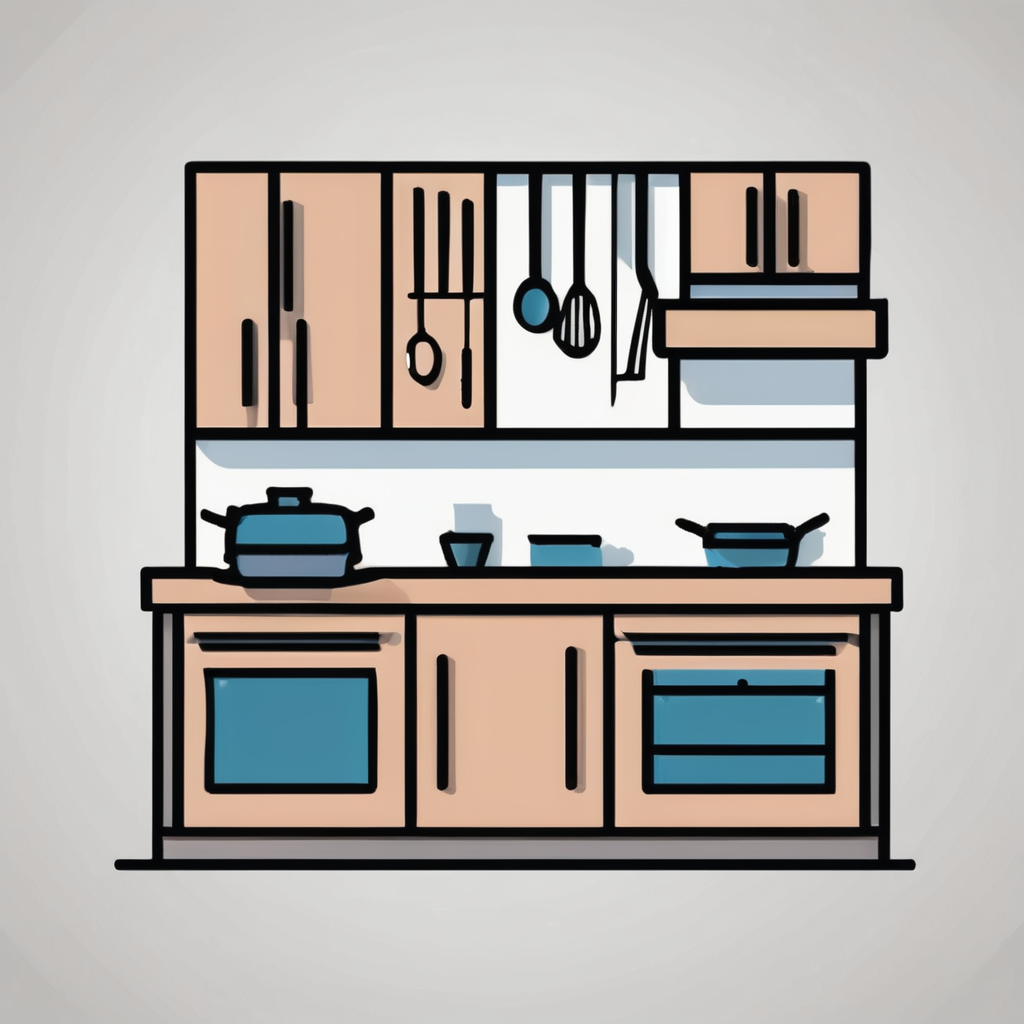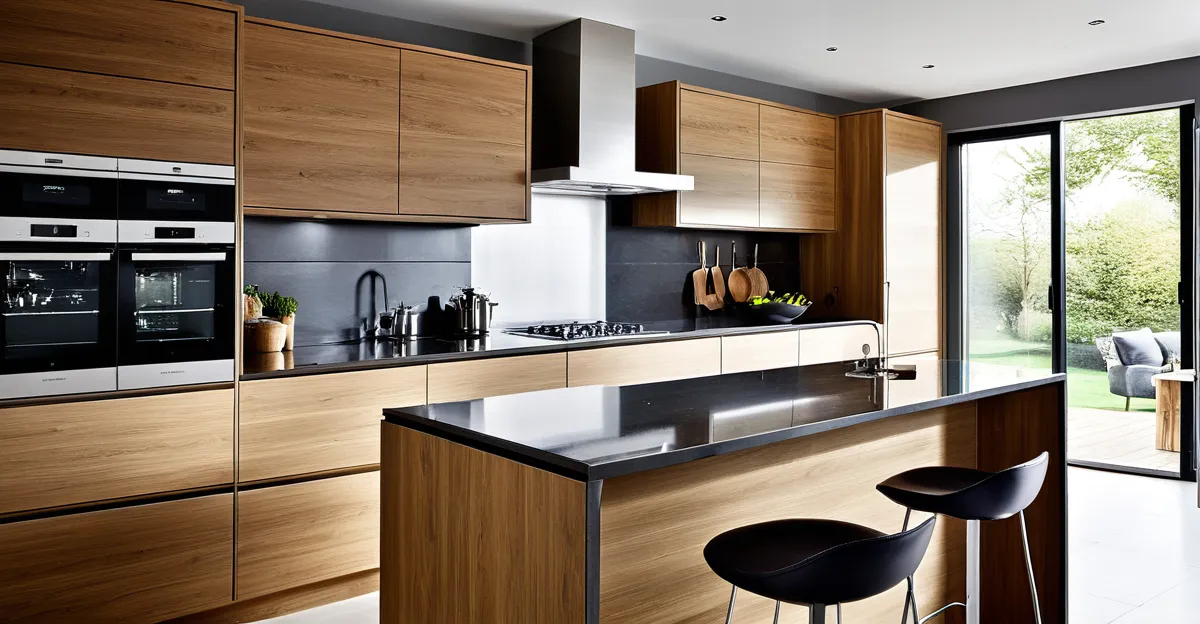Key advancements redefining UK kitchen spaces
UK kitchen design trends increasingly blend innovation with functionality. Modern UK kitchens now feature cutting-edge appliances and smart technology that streamline cooking and cleaning. For example, induction hobs with integrated sensors adjust heat precisely, enhancing energy efficiency and safety. Innovative kitchen technology also includes voice-activated lighting and automated storage solutions, addressing common UK challenges such as limited space and older property constraints.
Designers are adapting layouts to maximize small or uniquely shaped rooms common in British homes. Clever use of vertical storage, foldable surfaces, and multi-purpose kitchen islands reflect these practical responses. Market shifts show a rising demand for customisation, where homeowners seek tailored solutions that combine sleek aesthetics with adaptability.
Also read : How do UK bars create a unique dining atmosphere?
Furthermore, sustainability is driving innovation, with eco-friendly materials and energy-saving appliances becoming standard. These trends ensure that modern UK kitchens are not only smart and stylish but also environmentally responsible. Staying updated with UK kitchen design trends means embracing technology that enhances daily life while respecting traditional British home architecture.
Smart technology integration in British kitchens
Smart kitchen appliances UK have revolutionised how households cook and manage their kitchens. Leading the UK market are devices like smart ovens, refrigerators, and coffee makers that connect seamlessly via Wi-Fi, enabling users to monitor and control them remotely. This connected kitchen tech offers unparalleled convenience, allowing you to preheat your oven from the office or adjust fridge temperatures on the go.
Also read : What Innovations Are Shaping the Future of UK Kitchen Spaces?
The rise of Internet of Things (IoT) devices has significantly impacted energy efficiency in modern kitchens. Smart appliances optimise energy use by powering down when not needed or running during off-peak times, reducing electricity bills without sacrificing performance. This synergy between convenience and sustainability is a key benefit of smart home integrations in British kitchens.
Voice controls through platforms like Alexa and Google Assistant further simplify kitchen management. You can set timers, get recipe guidance, or control multiple appliances hands-free. Mobile management apps complement this by providing real-time updates and customisation options, putting complete control of your kitchen at your fingertips in the UK’s digitally connected environment.
Embracing sustainable and eco-friendly materials
In the UK, sustainable kitchen materials are transforming eco kitchens into sought-after spaces that blend style with responsibility. Leading this green kitchen design trend is the increased use of recycled and renewable resources, such as reclaimed wood, bamboo, and recycled glass. These materials reduce environmental impact by minimizing waste and conserving natural resources, aligning perfectly with eco kitchens UK demands.
UK suppliers now offer a variety of eco-responsible solutions, ensuring consumers find options that are both attractive and sustainable. Companies prioritize sourcing materials locally to reduce carbon footprints and support domestic industries. Additionally, many suppliers provide products certified by reputable standards like FSC (Forest Stewardship Council) or the EU Ecolabel, which guarantee environmental and social responsibility throughout the production chain.
These certifications help homeowners and designers make informed decisions, reinforcing confidence in sustainable kitchen materials UK and advancing broader adoption of green kitchen design. Embracing such materials means choosing kitchens that are healthier for both families and the planet, making a tangible difference in everyday living spaces.
Space-maximising solutions for modern homes
Designing a space-saving kitchen in the UK requires innovative approaches due to limited urban living areas. Contemporary kitchens incorporate clever storage mechanisms such as pull-out pantries, corner carousels, and vertical racks. These features transform unused nooks into practical storage, boosting efficiency without crowding.
Customisable layouts are essential for compact kitchen ideas. Modular cabinetry adapts to diverse spaces, enabling configurations that suit different lifestyles. For example, foldable countertops and integrated appliances allow seamless use of limited square footage, meeting the needs of busy households.
Case studies reveal that successful space-saving kitchen remodels employ both aesthetics and function. One project in London integrated drawer dividers and ceiling-high cupboards, tripling storage capacity while maintaining a clean look. Another used sliding shelves and hidden compartments, optimising every inch.
These solutions prove that innovative kitchen storage strategies can transform cramped rooms into highly functional hubs. Whether in flats or townhouses, employing adaptable furniture designs creates kitchens that feel generous, despite tight footprints. Exploring these options encourages homeowners to rethink how space is used, blending style and utility seamlessly.
Aesthetic trends and new design directions
British kitchen interior trends are embracing a fusion of modern kitchen aesthetics UK with traditional charm. Current colour palettes lean towards muted, earthy tones such as soft greys, sage greens, and warm beiges, reflecting a preference for calm and natural atmospheres. These hues are often paired with bespoke kitchen finishes like matte cabinetry and textured surfaces that add depth and warmth.
Materials are evolving, with increasing use of natural wood and stone alongside sleek metals. This combination bridges the gap between rustic and contemporary styles, epitomizing the trend of integrating traditional British style with contemporary elements. For example, shaker-style cabinets remain popular but are reinterpreted with minimalist hardware or bold paint colours, providing a fresh take on a classic look.
Emerging influences from European and global design introduce streamlined silhouettes and smart technology, adding functionality without compromising aesthetics. This global inspiration encourages home designers to explore bespoke kitchen finishes, blending craftsmanship with innovative materials to create unique yet practical kitchens. Overall, these evolving trends illustrate the UK’s dynamic approach to kitchen design, balancing heritage with modernity.
Leading UK brands and expert perspectives
Discovering the top UK kitchen brands opens a door to exceptional craftsmanship and innovation. Renowned manufacturers emphasize quality materials and customizable designs, catering to diverse tastes and spaces. These brands are pivotal in shaping contemporary UK kitchen trends, seamlessly blending aesthetics with functionality.
Industry experts highlight several vital kitchen innovation insights for homeowners. Smart kitchens equipped with integrated technology, such as touchscreen panels and energy-efficient appliances, are transforming cooking experiences. Additionally, modular units designed for easy updates appeal to evolving lifestyle needs.
For homeowners seeking expert advice, professionals recommend prioritizing layout efficiency and durable surfaces. These expert kitchen design tips encourage maximum storage and natural light utilization, enhancing both utility and ambiance. Incorporating eco-friendly materials is another significant trend promoted by UK designers.
Resources tailored to UK residents, including showroom visits and virtual consultations, offer practical avenues to explore these cutting-edge kitchens. Engaging with leading brands directly ensures access to the latest innovations and personalized solutions. Embracing insights from industry experts empowers homeowners to create kitchens that are not only stylish but future-ready.





